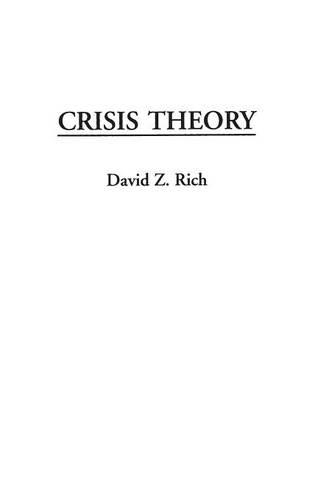
Crisis Theory
(Hardback)
Publishing Details
Crisis Theory
By (Author) David Rich
Bloomsbury Publishing PLC
Praeger Publishers Inc
28th October 1997
United States
Classifications
Tertiary Education
Non Fiction
Economic theory and philosophy
Western philosophy from c 1800
330.01
Physical Properties
Hardback
248
Width 156mm, Height 235mm
567g
Description
Challenging chaos theory and catastrophe theory, the author contends that with the fragmented state of knowledge in contemporary times, these dynamic equilibrium-oriented theories are inadequate for generating new knowledge. Arguing that knowledge is dynamic and disequilibrium-oriented, Rich provides a new theoretical approachcrisis theoryand applies it to the problems of economics, politics, and the natural sciences. Crisis theory is constructed to deal with changes in problem areas, to allow for the development of new theories in both existing and emerging problem areas, and to allow for the exchange of information within opposing theories in economics and politics. The book is composed of three parts. Part 1 discusses the role of knowledge and its anti-realism in our contemporary era and establishes the need for a new theory. Part 2 develops the schematic of crisis theory. In Part 3, the theory is applied to the problems of long-term business cycle theories, the nine implications of Mancur Olson's logic, the problems of the postindustrial future-oriented countries, and the paradox of industrialization.
Author Bio
DAVID Z. RICH is an economic consultant, independent researcher, and freelance writer. His most recent books include The Economic Theory of Growth and Development (Praeger, 1994) and The Economics of International Trade (Quorum, 1992).
